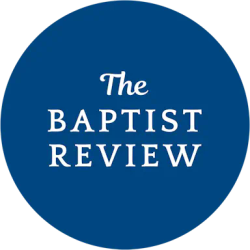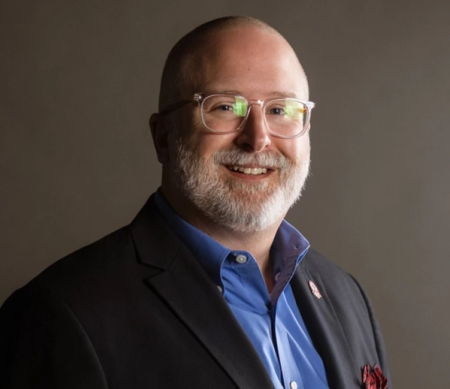The Cooperation Group recently published recommendations for Southern Baptists to consider at the Annual Meeting in Indianapolis. In addition to our formal recommendations, we included an addendum encouraging Southern Baptists to stop using the word “disfellowship” to describe the decision by messengers to declare a church is no longer in friendly cooperation with the Convention. The addendum is already generating discussion, which is exactly what we wanted.
As members of the Cooperation Group, we want to offer further thoughts on this topic that complement the addendum. Our intent is not to quarrel over words, which the Apostle Paul warns against (2 Tim. 2:14). Rather, we offer this encouragement to our fellow Southern Baptists for at least three reasons.
Biblical Clarity in Communication
First, we want to avoid communicating that we assume churches that are no longer in friendly cooperation with the SBC have ceased to be Christian. The vast majority of the time, the break in cooperation occurs because of differences of opinion over secondary matters of faith and practice.
To extend the “hand of fellowship” to someone in the New Testament is to receive them as a fellow Christian, as the apostles did with the recently converted Paul (Gal. 2:9; Acts 2:42). The line between Christianity and the world, Paul then explains, is the line of “fellowship.” “What fellowship has light with darkness,” he asks rhetorically (2 Cor. 6:14).
Our fellowship roots in our shared inclusion in the gospel of Jesus Christ. So says the Apostle John:
- “that which we have seen and heard we proclaim also to you, so that you too may have fellowship with us; and indeed our fellowship is with the Father and with his Son Jesus Christ” (1 John 1:3).
- “But if we walk in the light, as he is in the light, we have fellowship with one another, and the blood of Jesus his Son cleanses us from all sin” (1 John 1:7).
Biblically, to “disfellowship” a church is to excommunicate that church, at least if we’re using the word like the apostles did. It’s to say we can no longer affirm that church as Christian. When we use this word to describe a breach in cooperation with churches over secondary matters, we unintentionally exaggerate the extent of their errors.
When Christians hear the word “fellowship,” they should hear it with the resonance of “fellow Christian.” After all, the Bible itself trains us to hear the word that way. As a general principle of discipleship, therefore, we think it's best when Christians use Bible words, according to their biblical definitions, to communicate our intentions and actions.
Avoiding Kingdom Parochialism
Second, we want to avoid kingdom parochialism, as if Southern Baptists have “cornered the market” on faithfulness. We never want to imply a church must belong to the SBC in order to do good kingdom work.
Messengers to the 2023 Annual Meeting voted that Saddleback Church is no longer in friendly cooperation with the SBC. Did that action cast Saddleback outside the people of God, outside the camp and into the wilderness, like Hester Prynne in TheScarlet Letter forced to live in the wild woods beyond the town? Absolutely not. We simply decided that we can no longer in good conscience cooperate with Saddleback in certain kinds of ministry work because we no longer share the same convictions about female pastors. The decision was similar to Paul and Barnabas disagreeing over John Mark. They didn't "disfellowship." They took different ministry paths based on differing secondary convictions.
The good news for all parties involved is that the kingdom of Christ is far bigger than the Southern Baptist Convention. Praise God! We are grateful to God for all the gospel work taking place in Presbyterian and Anglican and Evangelical Free and independent Bible and so many other churches. If a Baptist cannot rejoice over that, then that Baptist might not be a Christian.
The reality is that the Lord Jesus Christ doesn’t needthe Southern Baptist Convention. He will keep his promise to build his church with or without us.
To be sure, peaceably working through disagreements and separations depends on the posture of the church being unseated, too. By analogy, think of the church member who approaches the pastor and explains that he now believes in infant baptism. He can continue that conversation immaturely or maturely. An immature approach demands the church to bend to his new convictions. A mature approach says, “I understand if my new convictions mean I need to find another church. Will you help me find a good one?” The latter approach is possible because the kingdom of God is bigger than any one church or convention.
Lowering the Temperature
Third, by acknowledging that we’re 1) not removing the hand of fellowship and 2) not claiming a church can’t do good kingdom work, we lower the stakes on the whole conversation.
The word “disfellowship” is a severe word. It brings heat, but not always light, making the decision to take separate ministry paths far worse than it is. It raises the emotional temperature and drama unnecessarily.
In general, we encourage members of Southern Baptist churches to aspire to be drama dampeners, not drama accelerators. Satan loves drama. He rejoices when he provokes the saints to gasp and whisper about one another, “I can’t believe he…?!” or “If that motion passes the SBC is done!” The godliest people we know are the peacemakers who tamp down the drama, not stir it up. They give one another the benefit of the doubt even (perhaps especially) when they disagree and take separate ways.
When “Disfellowship” is the Right Word
Normally, the Convention will decide to end its cooperative relationship with a church due to a secondary matter. However, there may be some instances where Southern Baptists may want to separate due to grievous theological or ethical error. In such cases, we believe the word “disfellowship” is the right word.
Yet even here it's important to clarify two points. First, the stakes should be high for the word “disfellowship” to be used. Examples include churches that explicitly abandon the gospel (and not just implications of the gospel), or condone racism and other forms of hatred toward fellow image-bearers, or reject the gospel call to repentance by affirming homosexuality or transgenderism. These are not secondary issues. Rather they are significant enough errors that we should question the Christian confession of churches that embrace them. Thankfully, these errors are rare among churches that cooperate with the Southern Baptist Convention.
Second, even in such cases, the SBC doesn’t have the authority to “disfellowship” churches in any formal ecclesiastical sense because, in our polity, every church remains ecclesiastically independent. That said, the Convention can encourage cooperating churches through our confessional statement, legal documents, and resolutions to not extend the sort of fellowship to such compromised assemblies that it gives the impression that they are faithful to their Christian confession and have no need to repent. We should treat such churches like we would a liberal Mainline congregation.
We are grateful for the opportunity to make this case to our fellow Southern Baptists. Our sincere desire is to serve our brother pastors, seminary professors, and the faithful men and women who work for our various entities and boards. We pray the Holy Spirit would give us wisdom as we consider the best language to use when messengers decide that a church should no longer remain in friendly cooperation with the SBC.
Editor's Note: As a part of its commitment to fostering conversation within the Southern Baptist Convention, the Baptist Review may publish editorials that espouse viewpoints that are not necessarily shared by the TBR team or other contributors. We welcome submissions for responses and rebuttals to any editorials as we seek to host meaningful conversations about the present and future of our convention.

Join the Baptist Review for our Presidential Forum in Indianapolis on Monday, June 10 at 9pm. Registration is required for attendance.



